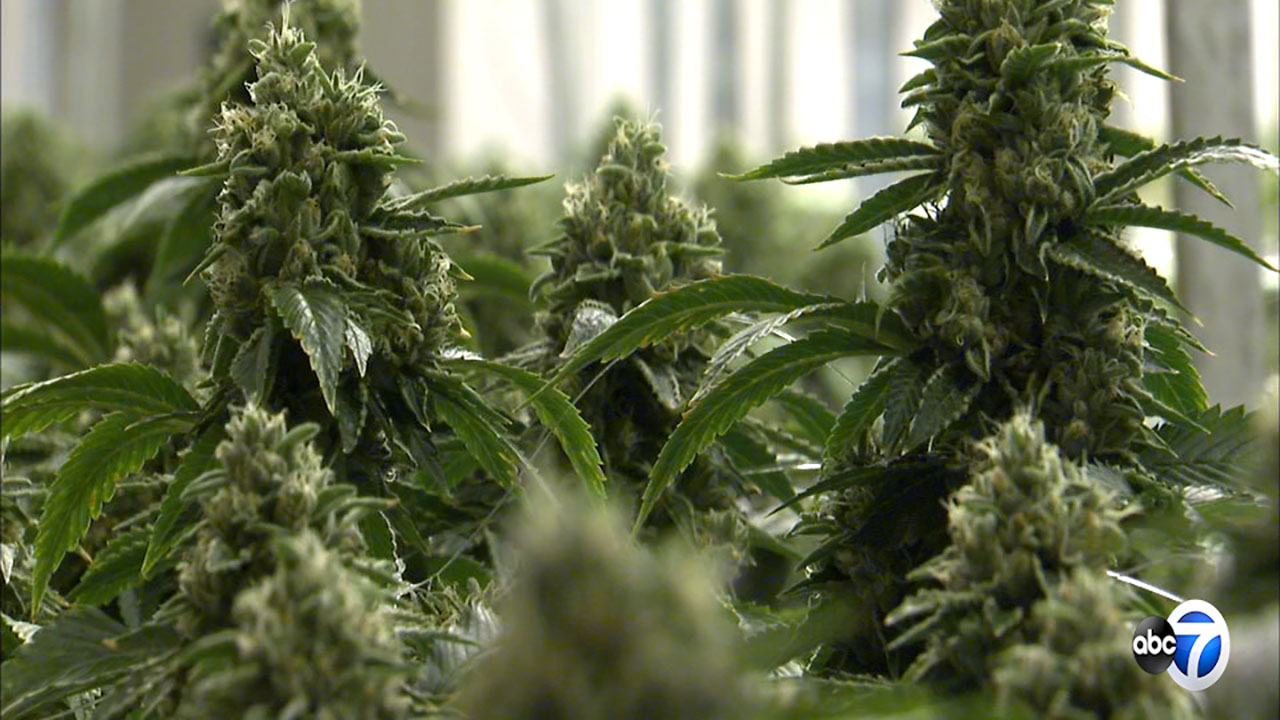Illinois releases 'Disproportionately Impacted Areas' map for social equity cannabis program applicants


CHICAGO (WLS) -- In just a few months recreational cannabis will be legal in Illinois and state officials are working to ensure all communities can participate in the legal cannabis industry.
Monday, the Pritzker Administration released maps that designate areas they are considering "disproportionately impacted areas" for cannabis program's social equity applicants.
According to the administration, more than 2 million Illinoisans live in a disproportionately impacted area.
RELATED: Illinois Weed Legalization Guide

According to the Department of Commerce and Economic Opportunity, in order be considered a disproportionately impacted area, a census tract must have high rates of arrest, convictions and incarcerations related to cannabis. Other qualifications, including poverty and unemployment, also contribute to the designation.
The effort is part of the administration's commitment to ensure communities that have been historically impacted by cannabis prohibition will not be excluded once marijuana is legal.
RELATED: Illinois Weed Legalization Guide: Will your city or town sell marijuana?
"As Illinois continues its path toward putting equity at the forefront of the state's new adult-use cannabis expansion, it's important to create opportunities in communities that have been hardest hit by the war on marijuana," said Governor JB Pritzker. "Not only will social equity applicants receive points on their applications, but many applicants will also get grants, technical assistance, low-interest loans and fee reductions and waivers. Taken together, these efforts will do more than any other state in the nation has done to focus on equity."
Later this year, DCEO will also launch a program that provides low-interest loans to qualified social equity applicants to help cover the expense of starting and operating a cannabis business.
RELATED: Chicago marijuana sales will be banned downtown, Mayor Lightfoot says in proposed ordinance
Anyone applying for a license to operate a cannabis business can include information to verify their status as a social equity candidate, and applicants already classified as social equity candidates can apply for DCEO loans.
In addition to offering loans, DCEO said they will offer technical assistance and support for social equity applicants, including putting together a business plan and applying for a license.
RELATED: Illinois approves 26 businesses to offer safety training to marijuana sellers
To qualify as a social equity applicant, you must be an Illinois resident and fulfill at least one other criteria, including:
- At least 51 percent ownership and control by one or more individuals who have lived at least five of 10 years in a disproportionately impacted area
- At least 51 percent ownership and control by one or more individual [or family member of an individual]
- Applicant has been arrested for, convicted of or adjudicated delinquent for an offense that is eligible for cannabis expungement
- Applicants with the minimum of 10 full-time employees must have at least 51 percent of employees who currently reside in a disproportionately impacted area or have been affected by cannabis-related offenses.
The Illinois Department of Financial and Professional Regulation will post the application for a license to operate a marijuana dispensary on their website on October 1, and begin accepting applications on December 10.
The department will stop accepting licenses at 12 p.m. on January 2, 2020, and will issue up to 75 licenses by May 1, 2020.
To view the map of disproportionately impacted areas, click here.










